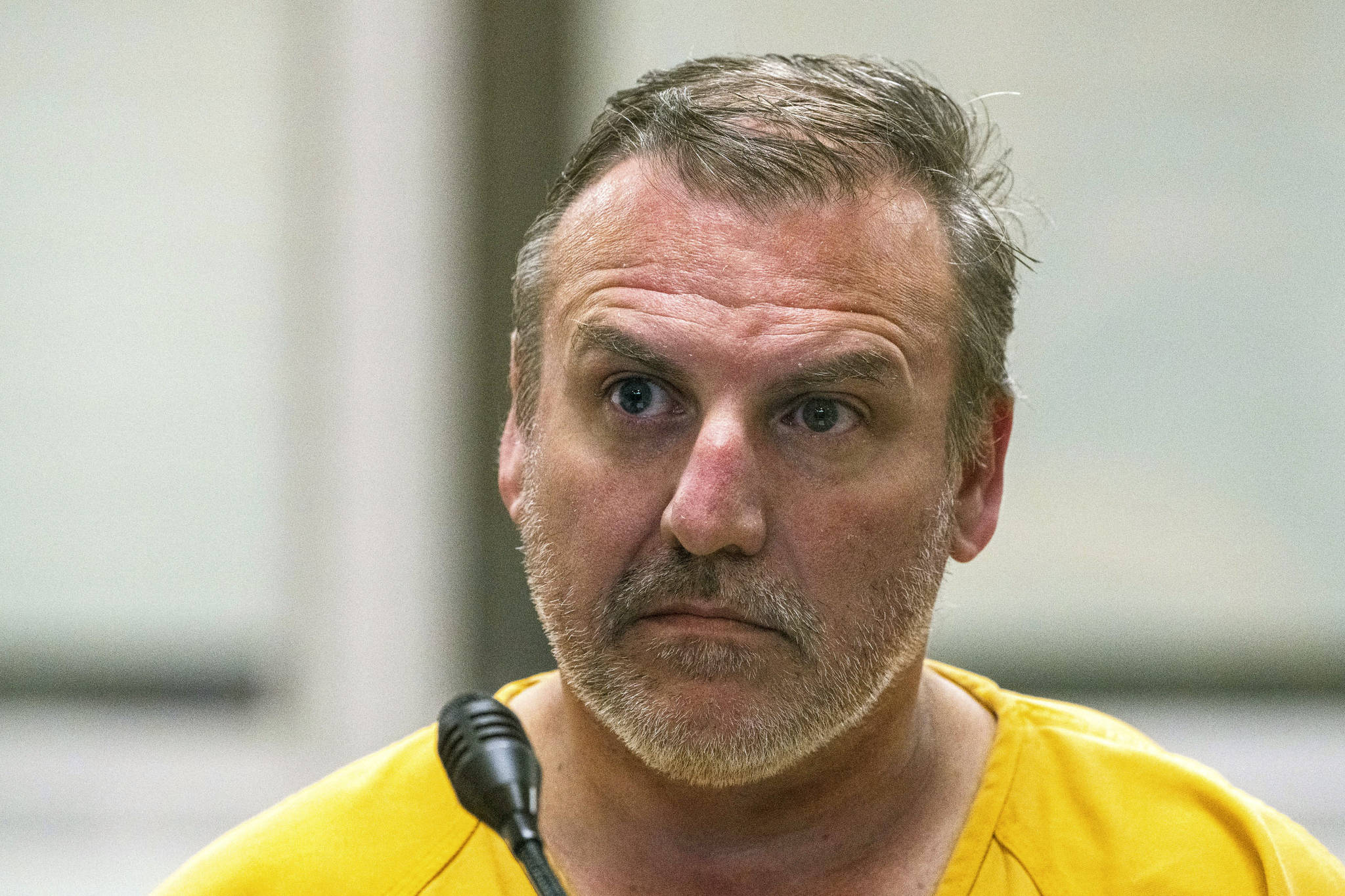ANCHORAGE — The suspect in a brutal torture killing in Alaska’s biggest city ended up leading police right to him, first by losing a digital memory card labeled “Homicide at midtown Marriott” that contained video of the dying woman.
Then came an even more innocuous blunder: He spoke on the tape in his distinctive, very un-Alaska accent.
When a woman found the memory card on the street and turned it over to police, what detectives saw was horrific. At one point, the suspect complained to the victim, whose face was swollen and bloodied: “My hand’s getting tired.” He then stomped her throat with his right foot.
Amid the shocking footage, a clue: The killer spoke in an “English sounding accent,” and detectives recalled Brian Steven Smith, a 48-year-old South African, from another investigation, the details of which they have not disclosed.
They arrested Smith, who has pleaded not guilty to the September slaying of 30-year-old Kathleen Henry, a homeless Alaska Native woman. During his interrogation, police say he confessed to killing another Alaska Native woman. Police won’t say if they think there may be other victims.
Anchorage has a diverse population — more than 200 languages are spoken in the Anchorage school system — and it’s not uncommon to hear people speaking with Russian, Yupik or Hmong accents.
But South African accents aren’t commonly heard in Anchorage, certainly not after the summer tourist season. Just a fraction of the city’s foreign-born population comes from Africa, according to the U.S. Census Bureau.
Authorities identified the second victim as Veronica Abouchuk, who was 52 years old when her family reported her missing in February. The family last saw her in July 2018, police said.
Smith told police where he killed Abouchuk in 2017 or 2018 and disposed of the body. It was in an area near where Alaska State Troopers recovered a skull with a bullet wound earlier this year.
His arraignment on those charges is set for Monday.
After both women were killed, their bodies were dumped along highways outside of Anchorage “like unwanted trash,” the state says in a memorandum seeking $2 million bail on the more than a dozen counts he faces, including first-degree murder, second-degree murder and evidence tampering. If convicted and found to have committed substantial torture in the Henry case, he will be sentenced to a mandatory 99 years, according to the state Department of Law. Alaska doesn’t have the death penalty.
“These were two Alaska Native women,” Anchorage Deputy District Attorney Brittany Dunlop told a news conference. “And I know that hits home here in Alaska, and we’re cognizant of that. We treat them with dignity and respect.”
Police have released little information beyond what is in court documents. When asked if Smith had an accomplice, Anchorage Police Chief Justin Doll said there’s no evidence of a public safety threat. He said they would continue to look at anyone else who might be involved, but only Smith has been charged.
In seeking the high bail, the state said Smith poses a flight risk, citing his ties to South Africa.
“He poses a significant public safety risk, especially to the vulnerable, homeless women living on the streets of Anchorage,” the memo says.
Authorities have released few details about Smith, but said he came to Alaska about five years ago and became a naturalized U.S. citizen in September.
Five years ago, he married Stephanie Bissland of Anchorage.
She was visiting family members in Virginia when Anchorage detectives approached her and told her of her husband’s arrest for the first homicide.
She told Anchorage television station KTUU that last month, Smith reported his vehicle had been vandalized and that his wallet, documents and a briefcase with phones and other electronics had been taken. She said it wasn’t unusual for Smith to have memory cards lying around from cameras and other gear he would work on and sell but said she never saw any of them labeled.
She told KTUU she was horrified by the charges against Smith. She didn’t return messages to The Associated Press seeking comment.
Smith’s attorney, Dan Lowery, an assistant public defender, said he does not comment on pending cases.
• This is an Associated Press report by Mark Thiessen. AP reporter Becky Bohrer in Juneau and Associated Press researcher Jennifer Farrar in New York contributed to this report.

